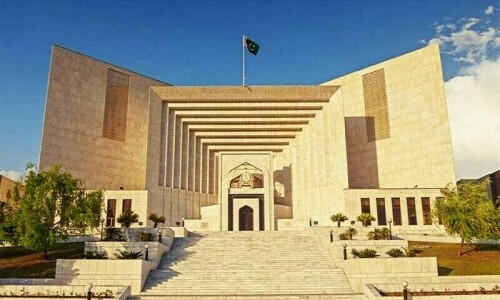 NAIROBI, Nov 21: Somali pirates have collected more than $150 million in ransoms over the past year, according to Kenya’s foreign affairs minister.
NAIROBI, Nov 21: Somali pirates have collected more than $150 million in ransoms over the past year, according to Kenya’s foreign affairs minister.
He called on the ship owners not to pay when their vessels were hijacked.
In the past two weeks Somali pirates have seized eight vessels including a huge Saudi super-tanker loaded with $100 million worth of crude oil. Several hundred crew members are now in the hands of Somali pirates.
“We are advised that in the last 12 months, ransom to the excess of $150 million has been paid to these criminals and that is why they are becoming more and more audacious in their activities,” Kenyan Foreign Minister Moses Wetangula said.
Saudi Arabia’s foreign minister said on Friday that the Saudi government was not and would not negotiate with pirates, but what the ship’s owners did was up to them.
Meanwhile, the world’s largest oil tanker company warned that it might divert cargo shipments, which would boost costs up to 40 per cent.
Frontline Ltd, which ferries five to 10 tankers of crude a month through the treacherous Gulf of Aden, said it was negotiating a change of shipping routes with some of its customers, including oil giants Exxon Mobil, Shell, BP and Chevron.
Martin Jensen, Frontline’s acting chief executive, said that sending tankers around South Africa instead would extend the trip by 40 per cent. Bermuda-based Frontline planned to make a decision whether to change shipping routes within a week, Jensen said.
“It’s not only our costs, but also those of the people who have a $100 million cargo on board,” Jensen said. “We’re not going to make a unilateral decision so we’ve been debating this with our customers.”
A.P. Moller-Maersk, the world’s largest container shipping company, on Thursday ordered some of its slower vessels to avoid the Gulf of Aden and head the long way around Africa.
The Copenhagen-based company said it was telling ships “without adequate speed”, mainly tankers, to sail the long route around Africa unless they can join convoys with naval escorts in the gulf, group executive Soeren Skou said.
The company didn’t say how many ships would be affected by the decision, but said it usually has eight tanker transits in the area per month. The company says it handles 16 per cent of the world’s container-shipping traffic. —AP
















































Dear visitor, the comments section is undergoing an overhaul and will return soon.